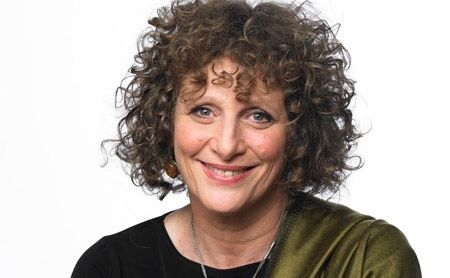Ramona Koval chats with us about her new book,

In
I confess to being a technology enthusiast. When I was writing about books I remembered but didn’t have anymore, gutenberg.org had them digitised and waiting for me. When I wanted to read a paper in some obscure journal, there was a library somewhere that made them available wherever I was. Writing non-fiction, Google answers any little query I have in a matter of seconds, and provides no excuses for not writing.
Digitised forms mean a more diverse reading experience than that offered by paper and illustrations. You can see associated videos and other readers’ views and ‘back stories’ and branching narratives and split-screen alternatives. I wonder at the possible atrophy of the readerly imagination from all these provisions. But when mass reading came in with the invention of the printing press, people were worried about the atrophy of memory. They were right, of course, but perhaps we gained more than we lost?
You’ve read across a wide terrain of genres – fiction, memoir, scientific accounts – and I wonder how much the ‘packaging’ dictates your reading. For example, if you know something is non-fiction as opposed to fiction, do you read the text differently?
Every book on any subject must do the same job of seduction on the reader. A non-fiction book has to convince you that it will tell you wonderful things in an exciting way, and will guide you over the hard bits and make the journey worth taking. Fiction has to convince you to fall into a made-up world. Both do this through language. You have to feel as a reader that you are in safe hands, in all genres. A non-fiction author must be a trustworthy source of knowledge. A fiction author must be a magician. A reader takes the plunge in the same way with each book.
I loved the chapter where you discussed explorers and their journals, and I found myself wondering whether you had ever kept a journal yourself? What do you think of this as a narrative form?
I’ve never had time to keep a journal in a life of working and mothering, except for occasional notes taken while I’m travelling. I’ve turned them into newspaper columns, radio documentaries and parts of By the Book. I’ve found that they are first drafts and need to be worked on, but that they always contain the kernel of something worth noting. Exploration journals are different if they are the last record of a group of brave men, like those of the Scott expedition. What might be lost in the prose is made up for by the knowledge that we are witnessing something historic and remarkable together with them.
Your relationship with your mother, and the ways you were able to relate to her through reading, is depicted here wonderfully. Do you have any books that you’d recommend for mothers to share with their daughters?
I couldn’t go past Colette’s wonderful collections of short stories – My Mother’s House and Sido. Grace Paley’s later work is often about mothering – The Little Disturbances of Man, for example, or Enormous Changes at the Last Minute.
But if you have the bedrock of a conversation going with your mother, any book can be your subject. Interesting differences can be teased out in an off-centred way, and you can talk about many other things when there is a book between you.
I realise this is a bit twee to ask, but I’d love to know which five authors, living or dead, you’d invite to a dinner party. Also, given your experience as a cook, do you know what you would prepare for the meal?
If you want to entertain, eat well and still hear everything your honoured guests are saying, you have to serve things that don’t require you to rush back to the kitchen all the time, to check on the stove. So leave the soufflés for another occasion. Borscht is good, hot in winter, chilled in summer. It’s such a beautiful colour: the crimson, white sour cream and tendrils of green dill; any artist would be thrilled even before they tasted it. Cabbage rolls can be prepared the day before. They’re better the second day anyway. And something wonderful for dessert, like a French lemon tart. A baked cheesecake might kill them.
Authors are notorious in groups, as they always want to steal each other’s limelight. Consider yourself warned and don’t be surprised at bad behaviour. Isaac Bashevis Singer would love the menu, Colette would be outrageously flirtatious, and Gore Vidal scathingly witty. Ernest Hemingway and Martha Gellhorn would have some great stories, and possibly provide an entertaining marital argument.
By the Book


